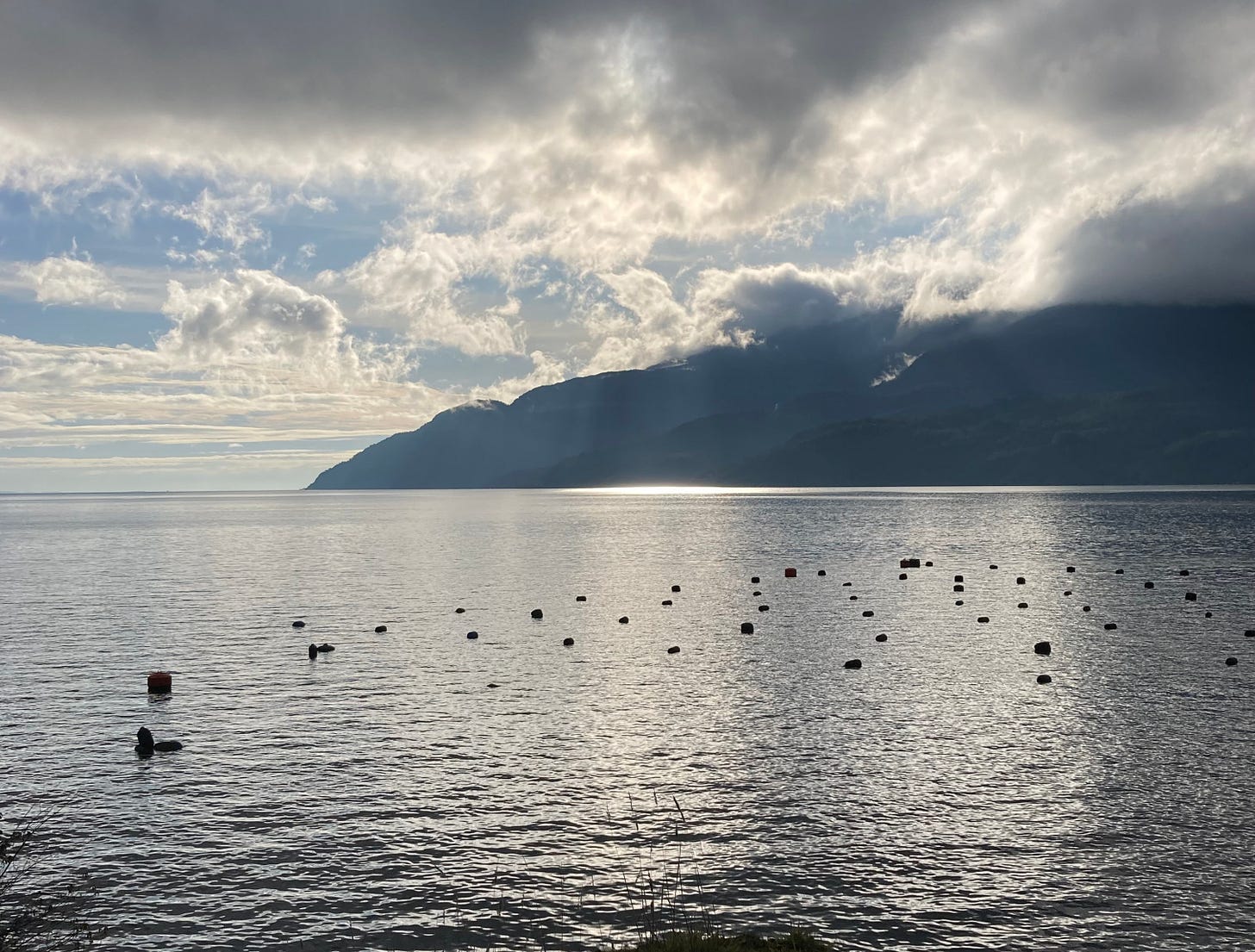Chapter 3 Fjordlands (4/6)
Theme: Mapuche history Komoot GPX (85km)
The Mapuche are a long persecuted people. They are one of few cultures who managed to weather the thunder of imperial storms.
Their resistance to the Spanish is known as the War of Arauco and lasted nearly a century, ending with peace negotiations heavily in their favour in the mid-1600s. Those terms established a border and forced the Spanish crown to recognize them as an independent state, a grudging respect no other indigenous group were afforded by the ruthless Iberian empire.
The Mapuche controlled large swathes of the continent’s far south until they were finally forced to become part of the Chilean state when the government invaded and occupied their territory in the 1880s. At this point, the border with Argentina served to divide the indigenous nation in two.
“The constitutions of Chile and Argentina say they inherited Spanish territories, but this did not include Araucania and Patagonia,” says Mariqueo, a Mapuche socialist who left Chile after the coup in 1973,
“My grandparents remembered the times before their land was illegally usurped through massacres and colonization 130 years ago.”
In Pedro Cayuqueo’s excellent book Porfiada y Rebelde es la Memoria - Determination and Rebellion is Memory (rough translation) - the true plight of the modern Mapuche is clearly explained.
Cayuqeo is a Mapuche journalist who has written for a number of Chilean publications and both founded and directed the Azkintuwe and Mapuche Times newspapers in Temuco, southern Chile.
He doesn’t hold back on calling out the racism and discrimination practiced by the Chilean state in the present day against the indigenous peoples who far predate its very existence.
The country is currently holding a series of referendums spearheaded by the young, left leaning president who seeks a state within a state for the Mapuche via a new constitution.
Whether that will enable them to retrieve what has now been lost is another matter.
Chileans overwhelmingly voted in favour of the new constitution in 2020. But the 2022 wording, which would have been one of the world’s most progressive charters, was roundly rejected, deemed too radical by voters.
Today, as we circle their volcanoes, it’s hard not to see them as a browbeaten culture. They may have retained their autonomy though the early modern era, but the Americanised, 21st century Chile leaves little room for their influence.
The Mapuche struggle wears on.
Back on the road, the early gift of an undeserved downhill, splattered with a steady drip of honey sellers and bee farms, has melted into something altogether wetter. Everything is coated in rain drops. Surface water springs from lorry wheels onto our gleaming bike frames. And onto our not so gleaming faces.
The view is mainly grey. Although it’s a coastal road, visibility is poor. Have we cycled as far as Burnham-On-Sea?
Sheltering in a cosy lunch stop as the rain poors down strengthens our resolve to continue. As does the dock off portion of chips we are fed by a friendly waitress.
An hour more of wheels fizzing through puddles. A lurid cemetry is all I capture through my dripping phone lens.
But salvation is on its way.
The Mapuche weather gods prove themselves on our side after all. We turn East, clouds roll back, leaves stretch and yawn in the the returning sunlight. The Amalfi is now a more appropriate comparison.
The Way is revitalized as the gravel returns. Vehicles throw up clouds of dust to hang in the late afternoon air, eager to bombard our eyelashes with tiny adhesive particles. A significant improvement.
I glance back and see Jake’s silhouette illuminated in a mini-sandstorm of golden hour glory. It’s much better than rain.
We camp in front of a school on the beach front. In the darkened building, a teacher sits beneath the one remaining light, working long and late.
A faint memory of home. I life I left behind. For now.
I wonder what their most time sapping activities are. Marking? Data input? Admin tasks? I’m sure the story is the same,
’I love the time with the students, it’s all the other stuff that wears me out.’
Above the salmon fisheries, across the bay, the moon flashes on sharp-faced mountains.
Somewhere below the waves, a school of dolphins prepare for a dawn frolic we’ll never forget.
And in canvas palaces, two bikepackers eat olive sandwiches because the lighter for the stove has broken and the pasta can’t cook itself.
✅1000km 🎉🎉🎉
Chapter 1 | Chapter 2 | Chapter 3 | Instagram | Komoot
Previous post: Ch3 Día 16 Volcanic delight
Next post: Ch3 Día 18 The Cochamó Crisis
If you’re enjoying the newsletter, please consider liking and sharing. It helps me to grow this project.
If you’re not, maybe just like and share out of spite anyway?








